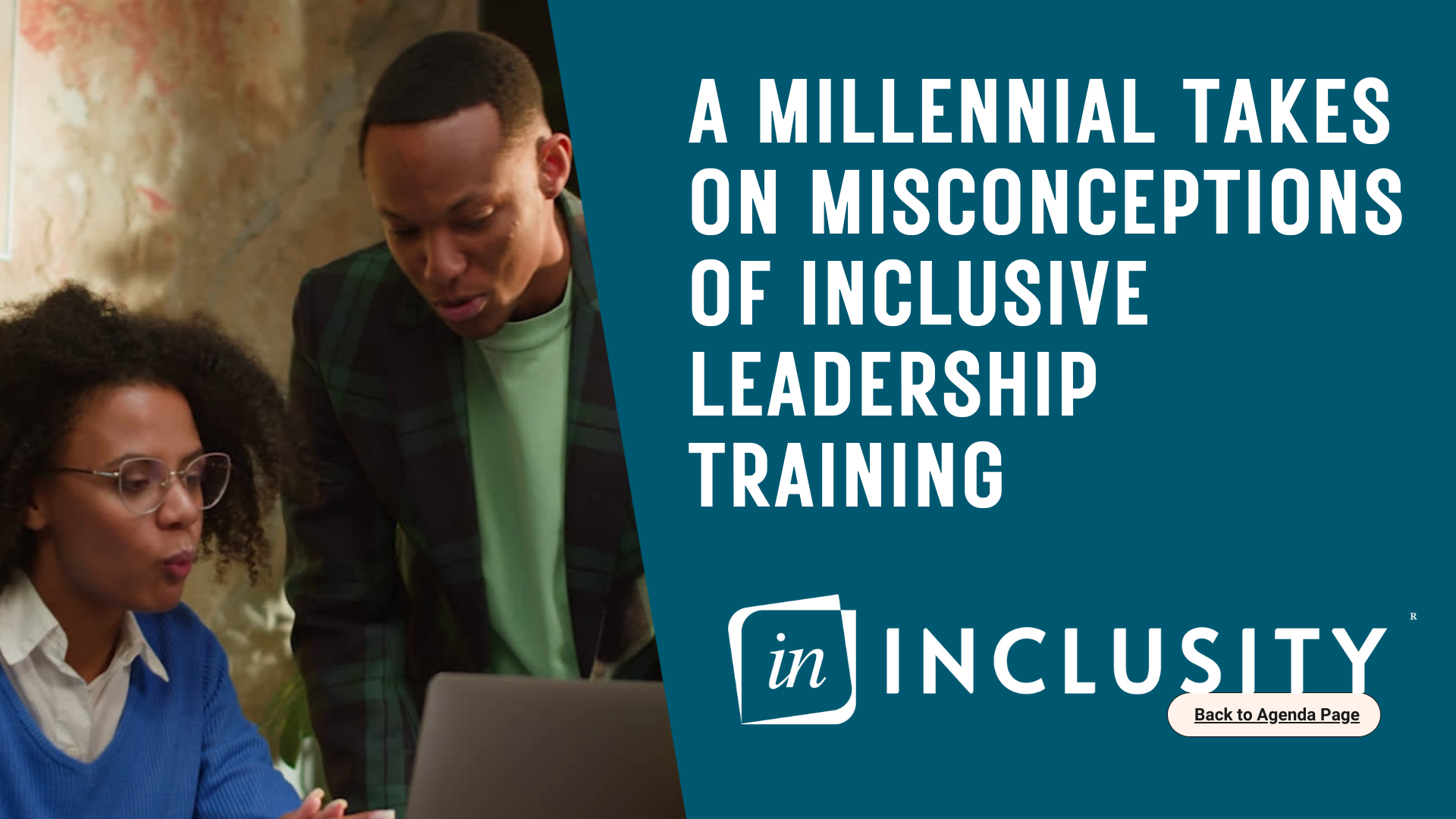Across many industries, we’re experiencing a fundamental shift in how people approach work, driven in large part by Millennial’s and Gen Z’s expectations of the workplace. From the embrace of hybrid workplaces to ever-evolving dress codes, we’re seeing the rejection of the one-size-fits-all mentality. Plus, the Millennial generation is very diverse compared to previous generations; they’re 44.2% racial/ethnic minorities, and Gen Z is even more diverse. Shifts in the workplace are becoming apparent in organizations’ approaches to leadership, too. The traditional top-down approach is moving toward a more emotionally intelligent, human-centered perspective. So how do we address this and come out more successful?
A focus on inclusive leadership will prepare leaders to keep up with workplace shifts and to effectively navigate diversity. So, how can we encourage people leaders or peers that inclusive leadership training is a valuable approach? Let’s take a look at some common objections or misconceptions you may encounter.
“Diversity Training – Yikes!”
It’s not new that it can be challenging to lead a diverse group of people in the workplace. Many traditional or veteran leaders may even flinch at the mention of diversity because they’ve had challenging experiences or little success with diversity training within their organization. We get it. At their worst, diversity efforts and training can alienate people groups – from those who have historically been marginalized to those in the majority.
We now know that it’s become clear that having a diverse team means nothing if you don’t appreciate, value, and leverage everyone’s individuality. That’s why Inclusity focuses on inclusion first.
“I don’t understand why Inclusive Leadership Training matters”
Whether or not we’re ready for it, Millennials and Gen Z are already challenging and changing the status quo in the workplace. Organizations must be prepared to lead and include them (and all the diversity their employees bring to the workplace). Being able to truly harness that talent is where using the tools of inclusion can not only unlock this talent but allow your team to be innovative as well.
When an organization leads with inclusion and welcomes diversity of people and ideas, they foster their success – and the success of the business. Inclusion is good for people and it’s good for the business.
And it’s not just younger generations that are interested in a more inclusive workplace, so efforts to lead with inclusion will have the potential to positively impact your entire team and workforce.
“Inclusive leadership training is too expensive”
Faced with competing cost priorities, decision makers in an organization may be quick to slash “extra” training or other professional development, which may not seem directly connected to profits or goals. It may seem like this type of extra spending doesn’t bring an immediate ROI.
However, consider the costs (both financial and time) of hiring and firing. Companies lose $450 to $500 BILLION in productivity each year due to poor performance and high absenteeism. So why continue in this cycle when there’s a real pathway toward profits/success?
We know that leaders are the primary influence on employees’ engagement, satisfaction, and retention.
In fact, highly engaged teams have an 81% lower rate of absenteeism and a 43% lower rate of turnover. The skills and qualities that comprise inclusive leadership are exactly those that engage employees so that they stay and contribute more fully. The more inclusive your leadership is, the freer your team is to apply their skills and talents to the task at hand.
“I’m not a people leader, so inclusive leadership doesn’t apply to me”
As the workplace is shifting and so too the definition of leadership, it’s no longer a popular belief that “people are born leaders or not.” That kind of thinking stems from a fixed mindset, which can lead to exclusion. Taking a growth mindset, Inclusity believes that everyone has the potential to be a leader, formally or not. In the workplace, influence is superseding authority, and leadership is no longer only about your title but your behavior. It’s about how you walk into a room, so to speak.
Like other inclusion training, an inclusive leadership workshop will improve ALL your relationships, working and personal. Even if you’re not a people manager, think about the places where you are in a position of influence and what you could gain by becoming more inclusive. Setting yourself apart by growing your self-awareness and emotional intelligence is a great place to start!
“Where do I start with inclusive leadership?”
Speaking of where to start, the good news is that inclusive leadership starts with you! Here’s some ways to begin:
- Refer to Inclusity’s post about our Inclusive Leadership Framework, which will familiarize you with the main components of inclusive leadership.
- Read Inclusity CEO Maria Arcocha White’s suggestions for how leaders can connect with colleagues
- Consider feedback you’ve received from previous supervisors/direct reports. Did they indicate any areas where you excelled? Or ones that could use some improvement?
- Think about training opportunities, which not only allow you to explore inclusive leadership concepts more deeply. Workshops offer a supportive, growth-minded learning environment.
- Consider writing a personal leadership statement that outlines your values and mission as a positive influence in your sphere
With Gen Z entering the workforce and Millennials now reaching leadership positions, we’ll likely experience another shift in expectations of workplace culture. Operating as inclusive leaders opens us to change and the skills to not only address it but embrace it.
